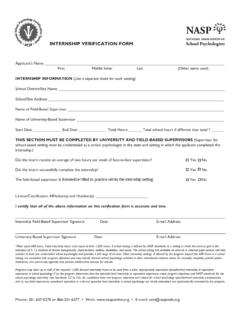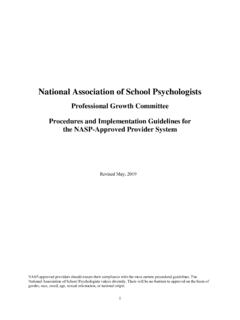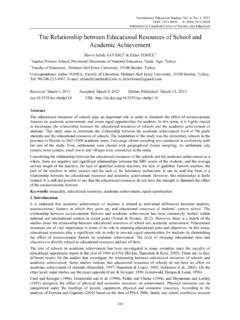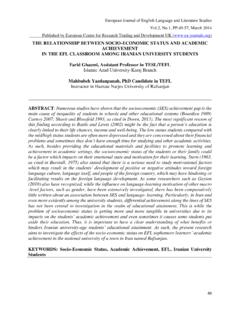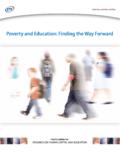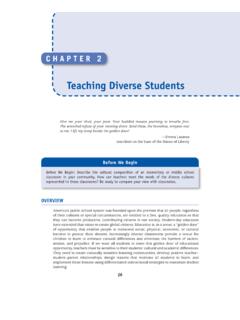Transcription of The Relationship Between Mental Health and Academic ...
1 Research Summaries NASP Research Summaries 1 A resource from the National Association of School Psychologists 301-657-0270 866-331-6277 The Relationship Between Mental Health and Academic Achievement Understanding the association Between students Mental Health and Academic achievement is a central priority for educators, policy makers, and community members. Although previously thought of as two distinct domains of functioning, there is evidence that Mental Health (or social emotional competence) and Academic achievement are interrelated (Jones, Brown, & Aber, 2011; Moilanen, Shaw, & Maxwell, 2010).
2 Indeed, fostering positive Mental Health in students has been shown to enhance Academic growth and several curricula exist that aim to grow Academic competencies through social and emotional learning (Brackett, Rivers, Reyes, Salovey, 2012; Denham & Brown, 2010; McCormick, Capella, O Connor, & McClowry, 2015). Just like regular instruction, the more frequent the exposure to social emotional learning, the greater the effect on Academic achievement (Zhai, Raver, & Jones, 2015). The current summary provides selected research demonstrating the links Between Mental Health (and/or social emotional competence) and Academic achievement.
3 A meta-analysis of school-based social and emotional learning programs involving more than 270,000 students in grades K-12 revealed that students who participated in these programs improved in grades and standardized test scores by 11 percentile points compared to control groups (Durlak, Weissberg, Dymnicki, Taylor, & Schellinger, 2011). Children s prosocial skills in kindergarten were predictive of Academic achievement 20 years later. Children with higher prosocial skills in kindergarten were approximately 50% more likely to graduate on time and 100% more likely to complete a college degree (Jones, Greenberg, & Crowley, 2015).
4 In a review of over 85 studies that contained the measurement of Mental Health domains and at least one educational outcome ( , Academic achievement, Academic skills, ), Mental Health treatments delivered in school and non-school settings resulted in positive educational outcomes. A significant association was found Between Mental Health improvements and educational outcomes (Becker, Brandt, Stephan, & Chorpita, 2014). Externalizing problems, as opposed to internalizing problems, were the most consistent predictor of later, lower Academic achievement even when accounting for shared-risk factors in two large nationally representative samples (Deighton et al.)
5 , 2017). Externalizing behavior problems, specifically attention problems, have also been associated with poor reading development (Hagan-Burke et al., 2011) and mathematics performance (Juechter, Dever, & Kamphaus, 2012). There is some evidence that the link Between Mental Health and Academic achievement differs Between males and females. For boys, externalizing symptoms predicted later lower Academic competence; S c h o o l P s y c h o l o g i s t s : I m p r o v i n g S t u d e n t a n d S c h o o l O u t c o m e s NASP Research Summaries 2 A resource from the National Association of School Psychologists 301-657-0270 866-331-6277 whereas, for females, internalizing symptoms predicted later lower Academic competence (Panayiotou & Humphrey, 2018).
6 Several studies support the co-occurrence of Mental Health difficulties and poor Academic achievement. That is, internalizing and externalizing symptoms, aggressive behavior, low social acceptance, and low Academic achievement do not occur in isolation but often appear together (Valdez, Lambert, & Ialongo, 2011; Bradshaw, Ialongo, Schaeffer, Petras, & 2010). Mental Health problems are one explanation for why children who are exposure to adversity ( , domestic violence and poverty) show impaired Academic functioning, are more likely to be retained in a grade, and are more likely to have an Individualized Education Program (January et al.)
7 , 2017; Porche, Costello, & Rosen-Reynoso, 2016). The combination of different social emotional skill domains ( , self-efficacy, social connections, managing ) was an effective predictor for whether a student was making positive progress towards high school graduation and, separately, whether a student had dropped out or failed approximately 15% of their courses (Davis, Solberg, de Baca, & Gore, 2014). Among black students, those with lower self-rated well-being and higher levels of Mental Health symptoms reported lower school bonding, a greater number of suspensions, and higher likelihood of being retained a grade (Rose, Lindsey, Xiao, Finigan-Carr, & Joe, 2017).
8 In a nationally representative sample of over 13,000 students, the social emotional functioning of immigrants was found to be higher than nonimmigrant families and was shown to be associated with reading and math performance in kindergarten (Houri & Sullivan, 2019). In two separate samples of students in Baltimore City, students who were not socially or behaviorally ready in kindergarten were significantly more likely to be suspended or expelled, retained in a grade, and receive supports through an Individualized Education Program or 504 plan.
9 The results were significantly more likely to occur in boys than girls (Bettencourt, Gross, & Ho, 2016). Students self-perceptions are important contributors to understanding the link Between Mental Health and Academic outcome. For example, students self-reported risk of behavioral and emotional difficulties in school provided a significant contribution to the prediction of Academic outcomes, when compared to teacher report (von der Embse, Jenkins, West, Eklund, Kilgus, & Morgan, 2019). Among boys, depression, conduct problems, school liking and school concerns were significant predictors of future Academic achievement.
10 Both school liking and school concerns during the transition to secondary school were significant predictors even when controlling for depression and conduct problems (Riglin, Frederickson, Shelton, & Rice, 2013). A poor school climate, of which Mental Health is component, is related to lower GPA in both girls and boys (Wang et al., 2014). Additionally, a poor school climate is associated with lower GPAs even when accounting for family structure (O Malley, Voight, Renshaw, & Eklund, 2014). Social emotional programs were the most effective programs at addressing Mental Health concerns, compared to ones focusing on student behavior or teacher-student relationships, and they were shown to have the strongest effect on Academic outcomes when they had teacher-focused components ( , S c h o o l P s y c h o l o g i s t s.)






